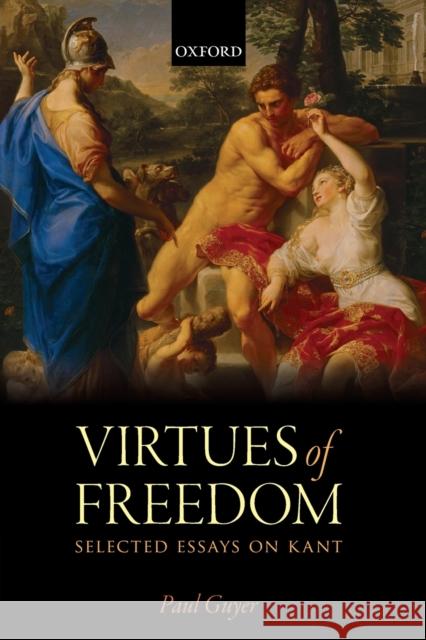The Virtues of Freedom: Selected Essays on Kant » książka
The Virtues of Freedom: Selected Essays on Kant
ISBN-13: 9780198755654 / Angielski / Miękka / 2017 / 352 str.
The Virtues of Freedom: Selected Essays on Kant
ISBN-13: 9780198755654 / Angielski / Miękka / 2017 / 352 str.
(netto: 194,04 VAT: 5%)
Najniższa cena z 30 dni: 185,21
ok. 30 dni roboczych
Bez gwarancji dostawy przed świętami
Darmowa dostawa!
The essays collected in this volume by Paul Guyer, one of the world's foremost Kant scholars, explore Kant's attempt to develop a morality grounded on the intrinsic and unconditional value of the human freedom to set our own ends. When regulated by the principle that the freedom of all is equally valuable, the freedom to set our own ends -- what Kant calls "humanity" - becomes what he calls autonomy. These essays explore Kant's strategies for establishing the premise that freedom is the inner worth of the world or the essential end of humankind, as he says, and for deriving the specific duties that fundamental principle of morality generates in the empirical circumstances of human existence. The Virtues of Freedom further investigates Kant's attempts to prove that we are always free to live up to this moral ideal, that is, that we have free will no matter what, as well as his more successful explorations of the ways in which our natural tendencies to be moral -- dispositions to the feeling of respect and more specific feelings such as love and self-esteem -- can and must be cultivated and educated. Guyer finally examines the various models of human community that Kant develops from his premise that our associations must be based on the value of freedom for all. The contrasts but also similarities of Kant's moral philosophy to that of David Hume but many of his other predecessors and contemporaries, such as Stoics and Epicureans, Pufendorf and Wolff, Hutcheson, Kames, and Smith, are also explored.











